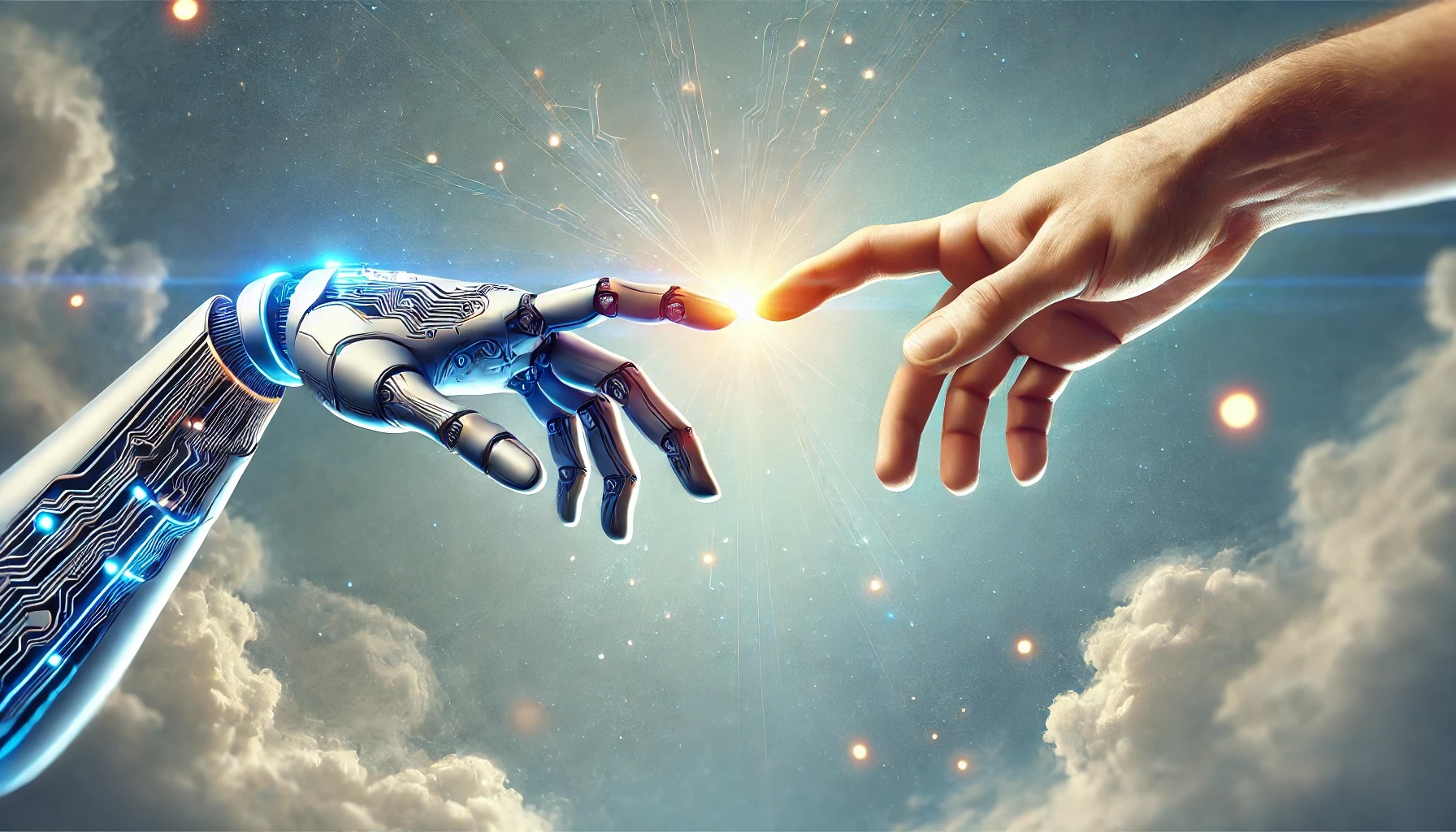AI’s potential in mental health care is groundbreaking, not because it replaces traditional therapy, but because it enhances it. By complementing the expertise of licensed professionals with 24/7 support, AI can accelerate recovery, offer emotional relief between sessions, and help individuals stay on track toward their mental health goals. This partnership between AI and traditional therapy represents the next evolution in care: accessible, consistent, and deeply personalized.
AI as a Bridge, Not a Replacement
One common misconception about AI in mental health is that it seeks to replace therapists. In reality, AI tools like swiss army sparky act as extensions of therapeutic care, filling gaps and offering assistance that therapists alone cannot provide. Therapy sessions are typically scheduled weekly or biweekly, leaving clients to navigate emotional ups and downs on their own between appointments. AI fills this void, acting as a constant presence and companion.
As outlined by Psychology Today, AI can assist therapists by automating administrative tasks and analyzing session notes to detect emotional patterns, allowing therapists to focus more on client care
Similarly, the World Economic Forum highlights AI’s ability to personalize support, guiding individuals through tailored exercises and strategies between sessions
What AI Adds to the Therapeutic Process
- ✅ 24/7 Availability:
- ★ AI offers real-time support, helping clients process emotions, practice coping strategies, or calm anxiety whenever it arises—even in the middle of the night.
- ✅ Reinforcing Strategies:
- ★ Therapists often recommend exercises like mindfulness, cognitive restructuring, or journaling. AI can guide clients through these tasks, ensuring consistency and practice.
- Example: After a therapy session focused on managing intrusive thoughts, AI can remind the client to apply specific CBT techniques throughout the week.
- ✅ Data Collection for Therapists:
-
- ★ AI can track mood patterns, daily triggers, and progress, providing valuable data for therapists to review during sessions.
- Example: A client who struggles with emotional regulation can use AI to log daily moods, giving their therapist a clear picture of their triggers and trends
- ✅Personalized Support:
- ★ AI adapts to the unique needs of each user, offering tailored suggestions or resources.
- Example: A client in grief can receive journaling prompts specific to loss, while another working through social anxiety might get conversation starters or exposure exercises.
Real-World Example: Enhancing Therapy with AI
A Dual Approach to Recovery
Imagine a woman recovering from PTSD following a traumatic event. She attends therapy once a week, where her licensed professional helps her process emotions and develop coping strategies. However, during the days between sessions, she often feels isolated and overwhelmed by flashbacks.
With swiss army sparky, she has a companion who listens to her concerns and guides her through calming techniques at any moment. When her therapist suggests mindfulness exercises, Sparky reminds her daily and tracks her progress. At their next session, her therapist reviews the data Sparky collected, helping them identify specific challenges to address.
The result? Faster recovery, better engagement, and a sense of empowerment.
Addressing Concerns: Why AI Cannot Replace Therapists
While AI offers significant benefits, it cannot replicate the depth of human understanding, empathy, and expertise that licensed therapists provide. Here’s why the partnership is essential:
- ✅ Human Expertise in Complex Cases: Therapists are trained to handle trauma, complex relational dynamics, and nuanced emotional issues that AI is not equipped to address. PositivePsychology.com
- ✅ Ethical Decision-Making: Therapists bring ethical judgment and real-time problem-solving that goes beyond algorithmic capabilities. Psychology Today
- ✅ Emotional Connection: A human therapist provides warmth, shared experiences, and a level of relational connection that is inherently human. World Economic Forum
Overcoming Stigma: Making Mental Health Support Accessible
For individuals hesitant to seek therapy due to stigma or fear of judgment, AI can serve as a gateway. A person might start by confiding in AI, building the courage to take the next step and work with a therapist. This initial engagement reduces barriers and makes mental health care more approachable.
The Future of AI and Therapy
The synergy between AI and traditional therapy is a powerful model for the future of mental health care. Together, they offer:
✅ Scalability: AI can reach underserved populations where access to therapists is limited.
✅ Holistic Support: Clients receive both professional expertise and constant, compassionate support.
✅ Innovative Insights: Therapists gain new tools and data-driven insights to enhance their practice.
Conclusion
AI is not here to replace therapists but to partner with them, offering 24/7 reinforcement and creating a bridge between sessions. This collaboration transforms therapy into a dynamic, continuous process where clients are empowered every step of the way. Together, AI and therapists represent a mental health revolution—one that brings healing within reach for more people than ever before.
#AIInTherapy #MentalHealthRevolution #HealingThroughTech

